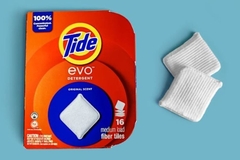Trending skin care ingredients: Non-surgical treatments, personalized and climate-adaptive solutions

Key themes of efficacy and naturality are trending for skin care ingredients with classic hyaluronic acid and retinol still seen as popular solutions. New entrants include EGCG, bio-silk and squalane amid climate-adaptive formulas and hyper-personalization themes.
Personal Care Insights connects with Givaudan Active Beauty, Univar Solutions and Paula’s Choice to learn more about these skin care ingredients.
Caroline de Roaldès, senior marketing manager at Givaudan Active Beauty, tells us the consumer focus on long-term skin health without invasive methods is propelling the upward trend of non-surgical cosmetic procedures that deliver effective actives.
“We see a peak in demand for recovery skin care in order to maximize the effect of the treatments and ensure a fast return to skin homeostasis. The interest for these solutions is particularly growing in Asia and North America where these skin care habits are getting more common,” says de Roaldès.
Another noticeable shift in consumer preference involves tailoring skin care regimes to environmental and weather conditions. “This is driven by, unfortunately, a more dramatic impact of climate change on consumers’ lives and a heightened concern for their skin longevity,” notes de Roaldès.
“This is expressed through a growing demand for tailored exposome-protective and climate-adaptive solutions. This is a new level of personalization now versus previous years that we see emerging.”
Staying on the topic of hyper-personalized skin care solutions, Univar Solutions’ personal care formulator, Monika Ruiz Golcher looks to the East:
“In EMEA, we’ve witnessed an inspiring commitment to enhancing the immune system. The rise of dermocosmetics in prestige and masstige skin care reflects a decisive shift in consumer preferences from soft claims to hard evidence supporting ingredients and formulations.”
“Diving deeper, we see that Gen Z throughout the UK has taken note of adaptogens, leading to growing demand and reflecting the rising intelligence of consumers down to an ingredient level.”
Golcher also underscores the rising demand for dermocosmetics particularly in line with microbiome-friendly formulations, AI-inspired ingredients and neurocosmetics.
Evolving label literacy
Givaudan’s recent Consumer Insights study on ingredient trends in facial care showed that consumers are more likely to be interested in ingredients with which they are familiar. “That’s why some classic ingredients, such as hyaluronic acid or retinol, still resonate with consumers in different parts of the world,” de Roaldès tells us.
“However, our research also showed that consumers are hungry for innovation, and some ingredients such as EGCG, bio-silk and squalane have piqued their interest.”
Squalane is the molecule in Givaudan’s biotechnology-derived ingredient Neossance Squalane, which is derived from sugarcane. Company data highlights that 72% of consumers globally perceive this ingredient as “innovative,” particularly in Brazil, where 84% of consumers share this sentiment.
“Among our 2024 launches, two ingredients are particularly trending,” de Roaldès continues. “The first is Primalhyal 50 Life, an even more sustainable version of our low molecular weight hyaluronic acid.”
“Thanks to its unique production process, its Life Cycle Analysis shows a global environmental footprint reduction of 91%. This innovation and proof of performance was particularly appreciated by consumers during focus group discussions we had in France.”
The French consumer focus groups valued the ingredient’s lower impact on the environment and the circular economy, which they described as a “virtuous circle” in their own words, as Givaudan finds sustainability is key in this region.
“Additionally, hyaluronic acid emerged as one of the undisputed hero molecules in our study, with 86% of consumers worldwide interested in having its molecule in a facial care product,” adds de Roaldès.
“The other one is Neuroglow, an ingredient that mimics all the well-being effects of the sun. Thanks to neuroscientific clinical tests and a mental health scale, we demonstrated that its use boosts feelings of affection while reducing tiredness and winter blues symptoms.”
“These well-being benefits and their quantification (both as biological markers and scientific validation of emotions) drew a lot of attention globally but particularly in countries where there is a significant lack of sun in the winter.”
Natural priorities
Moving further into 2024, Golcher at Univar Solutions stresses that demand for naturally derived ingredients is rapidly redefining product formulations. “From an effectiveness and sensoriality standpoint, these are replacing traditional synthetic ingredients that have dominated the market for years.”
“This shift reflects increased consumer awareness of the products they use and a strong demand for more sustainable, eco-friendly, safe and ethical ingredients,” she notes.
“Biopolymers, derived-natural and readily biodegradable emollients, are leading this trend by providing formulators the tools to transition smoothly from synthetic ingredients without compromising efficacy and sensoriality.”
Univar Solutions is a distributor for Cargill Beauty, which recently launched two versatile raw materials, Actigum Care and BotaniDesign. “These ingredients align seamlessly with consumers’ focus on sustainable beauty solutions and ingredients that respect, strengthen and protect the skin barrier while providing a great sensory experience,” highlights Golcher.
Actigum Care is a natural rheology modifier, designed using AI and made of polysaccharides — bio-fermented sclerotium gum and waxy corn starch. It is marketed as an alternative to petroleum-based polymers with “augmented sensoriality” and is 94.5% naturally derived according to ISO 16128.
BotaniDesign is a readily biodegradable natural plant-based alternative to conventional petroleum jelly. “It facilitates a 1:1 transition from petroleum-based products in emulsion formulations, while providing richness to formulations, a smooth and nourishing skin feel, and enhanced skin and hair care benefits,” says Golcher.
Next “it” ingredients
Paula’s Choice highlights Ectoin — an amino acid that is produced primarily by microorganisms in nature and serves to protect against heat, UV rays and high concentrations of salt — has been making headlines as the next “it” ingredient in skin care, revealing there is “more to this than just marketing buzz.”
Ectoin stands out as a unique hydrating ingredient performing a dual role by boosting moisture and offering protective and reparative properties.
“It forms a water shell around proteins to protect skin cells from environmental stressors as it helps repair past damage and improves barrier function. Mounting research indicates ectoin helps offset damaging effects of UV rays though to be clear, this does not replace the need for sunscreen,” Desiree Stordahl, director of Applied Research & Education at Paula’s Choice.
Thanks to advancements in biotechnology, scientists are unlocking new ways of tapping into the potential of mushroom extracts for various skin concerns. “One mushroom extract currently gaining global attention is Tremella fuciformis (also known as snow mushroom),” says Stordahl.
Snow mushroom’s skin benefits include soothing properties, hydration, minimizing uneven tone, as well as mitigating various signs of sun damage. It is a hero ingredient in Japanese mushroom skin care brand Shikohin — focuses entirely on extracting beauty molecules from mushrooms.
The ingredient has long held prominence in Asia, where it’s often touted as a natural alternative to hyaluronic acid. “While research hasn’t proven snow mushroom is better than hyaluronic acid, studies demonstrate it can help ramp up skin’s natural hyaluronic acid content,” notes Stordahl.
In winter skin care trends, brands are focusing on hydration, skin barrier protection and targeted active ingredients. Personal Care Insights recently connected with Beiersdorf, Vantage and TriNutra to learn more about their moisturizing formulations, personalized serums and holistic oil offerings that can combat seasonal skin challenges and enhance self-care routines.













